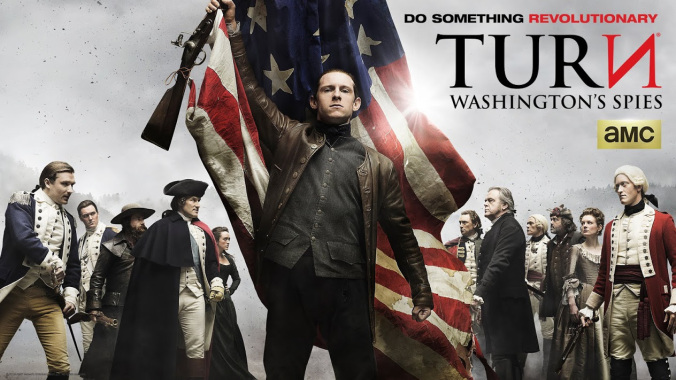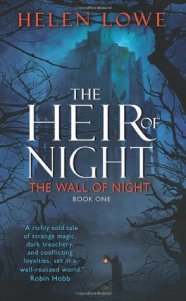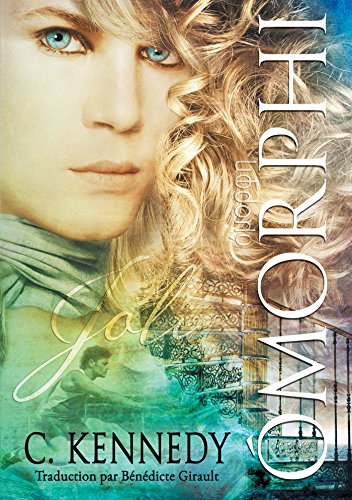When I first reviewed the audiobook Washington’s Spies: The Story of America’s First Spy Ring by Alexander Rose, I was marginally aware of AMC’s series Turn: Washington’s Spies. I read the book not because of the series, but because I am genuinely interested in history. But in my effort to trim down my TV viewing, I hadn’t yet decided to watch the series. After all, there’s a big, big difference between history and historical fiction. The series had just begun its second season when found this book. After reading it, I knew immediately that however the series chose to dramatize the events of the Culper spy ring, the book would be more of a guideline into the machinations and methodologies than of the characters and events. Even so, curiosity was piqued, and once I learned that Rose himself was involved in the series, I decided to pull the ripcord.
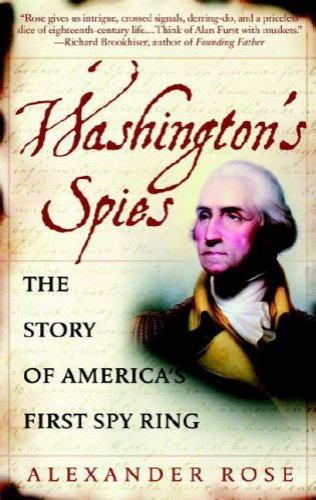
I was hooked in short order, got caught up in the span of a weekend, and became a loyal viewer all the way to the end. As is standard for me, I time shift all of my viewing to suit my own schedule, and this series soon became a wonderful Sunday morning ritual to engage with these characters over morning coffee. The last time I felt this kind of devotion to a series was Starz’ Spartacus, which itself became a Saturday morning ritual during its initial run.
The series ended Saturday night, and Sunday morning I watched the finale with rapt attention. Just because I can, I will likely go back to the beginning and watch it build all over again. The reason I feel that need is because where Spartacus was all about releasing the stress of a work week, Turn gave me new things to think about, and in these uncertain political times, it gave me new hope and inspiration in regards to my country. That’s part of why I enjoy history so much. The lessons are there for the taking, certainly, and not all of them are about doom and gloom. There is just as much or more inspiration if you’re willing to look. Sometimes that’s exactly the role historical fiction needs to take, to help people to look when they otherwise wouldn’t seek out history for its own sake.
As is the case with many shows, season one was a bit rough around the edges as it found its footing, but the potential came shining through. That roughness served to add to the rustic feel of the town of Setauket and its inhabitants. It made it come alive. While oohing and aahing over the costumes and sets as I tend to do, the reminders come across that the past is an alien world with alien customs and ideas, but those ideas transform across time, culture, and circumstance to become the forces that shape who we are today. As the series progressed across four seasons, Turn walked a fine line that allowed the series to focus on its principle characters — some of whom are famous or downright infamous — while unfolding the greater conflict in a way we can relate to it. In this way, the audience is pulled into the events of the American Revolution through the eyes of those characters, on both sides of the fight. What this series did so well is to demonstrate the idea that there were heroes on both sides, that the fight was anything but a conflict between good and evil. The message for any of the characters involved was simply what stand they should take based on their own moral perceptions of right and wrong. There are factors in play that will change some of those perceptions as the story progresses.
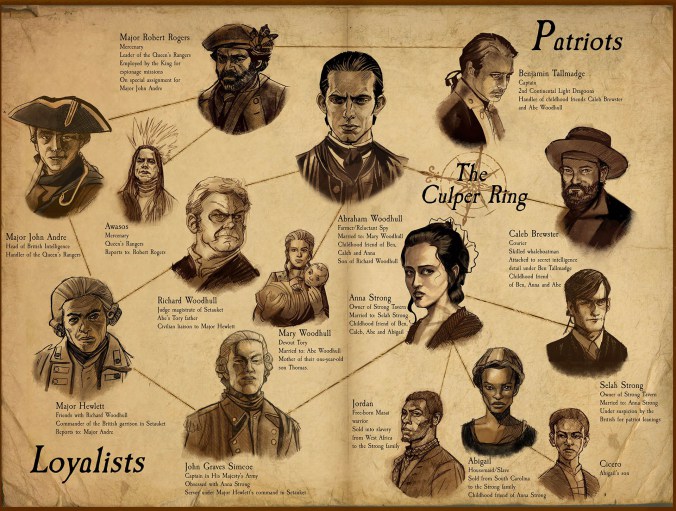
What I especially found interesting were the levels of loyalty and how quickly some characters could switch sides, and under what circumstances. For example, every American is aware of Benedict Arnold, but how many really know his story these days? I tend to lament the lack of educational standards in public schools and the seeming resistance to most people to want to learn when not “forced” to do so. This, too, is one of the reasons I hold historical fiction to such high standards; it provides a foothold for expansion of such ideas. I’m always on the lookout for the greatest accuracy possible, but if a series can get “close enough for government work,” I tend to give them a bit of a slide. In the case of Turn, I won’t pretend to know the details of characterization in most cases, but the historical points are really close, one of the side effects of having an historian on the team. And since I was able to trust the history, my defenses came down, and I was able to appreciate the characters and personal stories in play. With the history in place, all this series had to do to win me over was to make these characters believable, even the ones who weren’t always sympathetic. After that, the rest was easy.
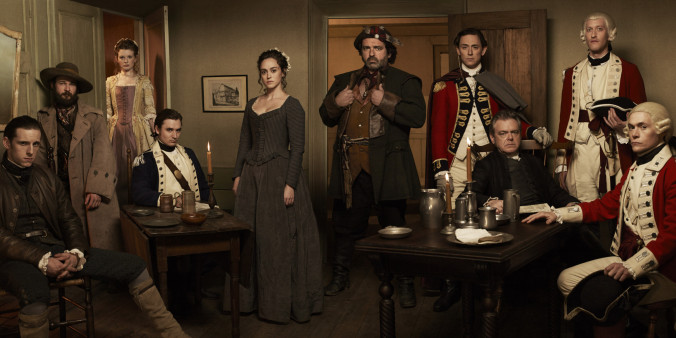
I have nothing but praise for every single member of the cast from the top down. It’s truly an ensemble performance. Jamie Bell’s Abraham Woodhull and Heather Lind’s Anna Strong lead the series, and given some of the personalities this series offers, it’s truly a credit to these two actors that they held their own. But that’s really the point I’m trying to make. Even the truly dominating personalities lend their gravitas to the whole. The bigger the personality in any given scene, the more ripples were sent through the story, and the more the other roles were given to play up. And through it all, it’s the everyman (or everywoman, if you will) who rose to do their part against impossible odds in often terrifying situations that makes this story what it is. We are all Abraham Woodhull. We are all Anna Strong. Or, we could be, if we’re willing to give it all as they did.
Given my penchant for heroes and villains, it’ll come as no surprise that my two favorites in this series fit those categories.
As a history buff, I’m well aware of the strengths and flaws of George Washington. Humanizing him isn’t easy. He towers literally and figuratively in his own story, even without the monolith of his legend. Ian Kahn’s portrayal feels to me like he stepped straight out of history itself. When he’s onscreen, you can feel the command presence. When he speaks, you listen. The weight of his decisions, his barely-controlled intensity… it’s all there. And best of all, this series doesn’t try to sugarcoat him or turn him into something he’s not. We see him as a leader of men, but we know him also to be a slave owner, a businessman, and a character both assured and conflicted with his role in life. He walks the tightrope between where he wants to be and where he needs to be. He does what he thinks needs to be done, and he forces his way through by sheer strength of will. You come to understand the toll of the war on all of the characters, the toll of the war on him, and his toll on the world around him before it’s over.
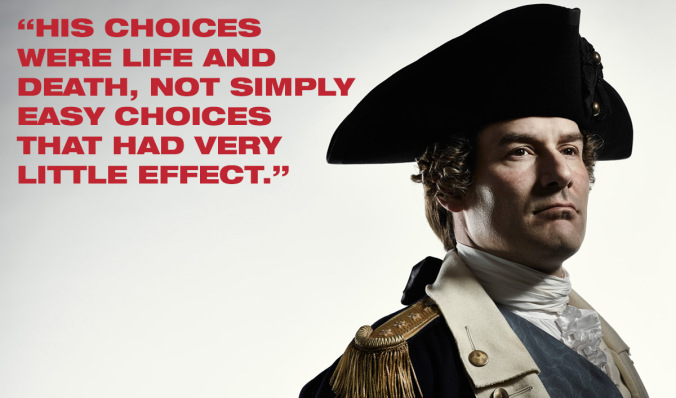
Of course, if his cause is to be immediate for our protagonists, and if he is to be counterbalanced on screen, every series needs a quality villain. Samuel Roukin has quickly become one of my current favorite character actors based on his appearance in the final season of Salem, and his role here as John Graves Simcoe. With apologies for the spoiler, if you know your history, then you already know this guy is one of Canada’s heroes. He also penned his own account of his time in the war, A Journal of the Operations of the Queen’s Rangers from the end of the year 1777 to the conclusion of the late American War (published 1787, which I want to get my paws on). On screen, Simcoe is a vile piece of work: cunning, merciless, and with a high pitched voice that will haunt your nightmares in the same way Judge Doom haunted Eddie Valiant in Who Framed Roger Rabbit. Best of all, at no point does he become a parody of himself. As over the top has he can be, he’s also dangerously restrained in reality. That’s really the best way I can put it. Bottom line, Roukin’s performance is applause worthy. The more you hate him, the more you cheer on the rest of the cast. You can tell that both actor and character absolutely loves his job.
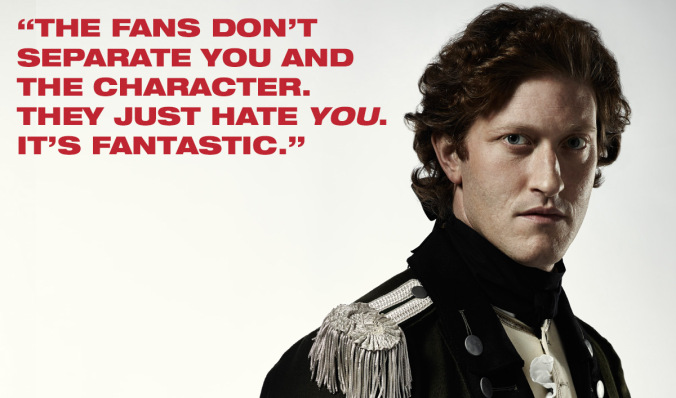
As I say, every performance across the board is remarkable. It’s easy to forget at times that these are actors, and thus it’s easy to get sucked into the world. The only things that really remind you of this are the scene changes, the written markers that tell you where you are, and, of course, the end credits.
As an American, it’s gratifying to see history dramatized without being mythologized. We see the struggle, we see the justifications, and we see just how much of a long shot it was to come through this intact, let alone as a new and independent nation. This series has all of the gravitas of The Tudors and The Borgias with none of the gratuity. It has all of the subterfuge and realistic action of Vikings, but appropriate to its own era. It is, in short, one of those truly memorable series that, in my humble opinion, deserves to be recognized for all of the right reasons.
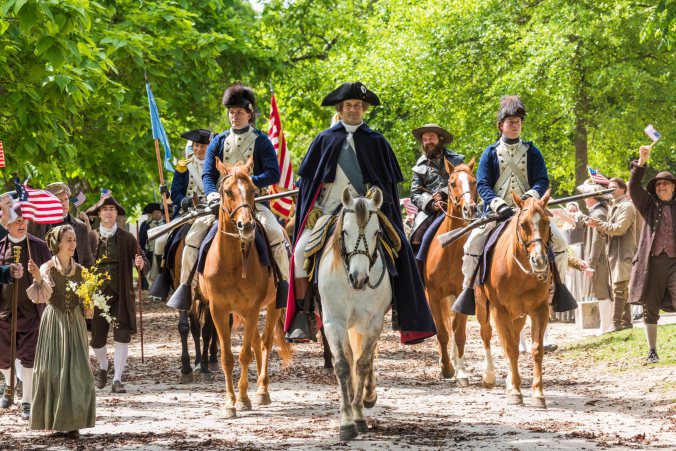
More than that, Turn comes across with the right story at the right time. In the time this series is first run, we’ve transferred the presidency from Obama to Trump. Political, social, economic, and even racial divides threaten to tear this country apart from the inside as they have since before I was born while we face down one external threat after the next from the likes of Russia, North Korea, and terrorist factions in the Middle East. Assuming we’re not wiped out in nuclear fire before the week’s over, Turn offers a reminder that no matter what side you’re on, no matter what your politics, people are still people. We all have forces in our lives that give us a wide range of perspectives. Extreme views lead to extreme situations on the world stage, and it will be individual people at all levels, in all walks of life, who make or break those situations. The unlikely can turn the screws and change everything for the right reasons. That’s the kind of reminder we need right now where everything is blown out of proportion on social media. Now, as then, it takes only good people to stand their ground, to serve and contribute to the process in our own ways. Freedom and liberty are everyone’s responsibility. The road is long, difficult, and full of ambiguities. It is also rewarding. In keeping these ideals alive, everyone wins. So long as these ideals live, people are free to tell those stories and keep them alive. It’s a self-perpetuating cycle.
5 stars
